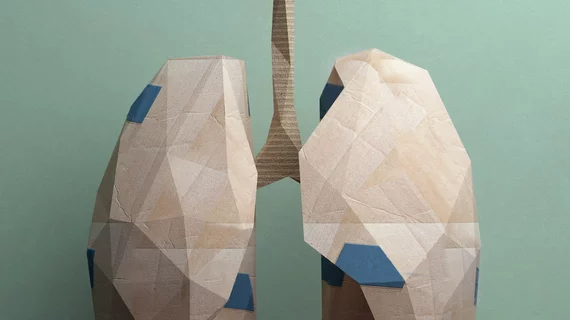Lung damage appears to persist one year after COVID-19 pneumonia, new CT study reveals
Lung damage may potentially persist one year after COVID-19 pneumonia, according to a new imaging analysis published Tuesday in the journal Radiology.
Numerous studies have tracked the novel coronavirus’ more immediate impact on patients’ health, but long-term data is lacking. Austrian researchers sought to better understand the ramifications, analyzing chest scans from 91 subjects.
One year after the initial case, 54% of COVID recoverees still had lung irregularities present on medical images, authors wrote March 29.
“The observed chest CT abnormalities from our study are indicative of damaged lung tissue,” study co-author Anna Luger, MD, from the Department of Radiology at Innsbruck Medical University in Innsbruck, Austria, said in a statement. “However, it is currently unclear if they represent persistent scarring, and whether they regress over time or lead to pulmonary fibrosis.”
Out of the 49 patients (average age of 59) with lingering issues, 4% had received outpatient treatment only, 51% in a general hospital ward and 45% received care in the ICU. Imaging abnormalities decreased in subsequent visits, though 63% of study subjects did not show further improvement after six months. Factors including male gender, critical COVID-19 severity and age over 60 were tied to persistent lung abnormalities at the one-year mark.
“Our results emphasize early and longitudinal monitoring of COVID-19 participants,” Luger and colleagues concluded. “Unfortunately, there is still an urgent need for further studies focusing on histological and clinical correlations within the first three months after COVID-19 to identify participants at risk for developing CT abnormalities and who would benefit from early tailored therapeutic concepts.”
Read more in the Radiological Society of North America’s flagship journal, including a corresponding editorial.

